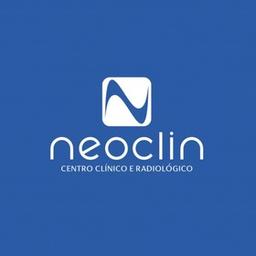Additional Filters
Best General dentist with prosthodontic services
Found 7 General dentist with prosthodontic services
Instituto Odontologico Dr. Ronei Guidão
Dentist Specializing in Aesthetic Dental Prosthesis and Implants in Brasília
Dental implant dentist
Dr. Henry Perlovsky
Oral and Maxillofacial Surgeon in São Paulo
Oral and maxillofacial surgeon
Dra. Fernanda Faria Ceccon
Dentist and dental surgeon in Mogi das Cruzes
Dentist
Dr. Silvana Guerra
Implant dentist specializing in oral rehabilitation in São Paulo
Dentist
NeoClin
Dental Clinic in Carmo
Dentist
Visitors who were interested in General dentist with prosthodontic services also searched for:
- Four-Hands Dentistry
- Combined Orthodontic-Prosthodontic Treatment
- Emergency Dental Treatment
- Eco-Whitening
- Increase of the Vertical Dimension of Occlusion
- Removal of a broken implant screw
- Aesthetic Veneers under a Microscope
- Laser Teeth Whitening
- Combined Periodontal-Orthodontic Treatment
- Digital Dentistry
General dentist with prosthodontic services by cities
- General dentist with prosthodontic services in Sao Paulo
- General dentist with prosthodontic services in Campos dos Goytacazes
- General dentist with prosthodontic services in Jundiai
- General dentist with prosthodontic services in Porto Alegre
- General dentist with prosthodontic services in Campinas
- General dentist with prosthodontic services in Sao Luis
- General dentist with prosthodontic services in Anapolis
- General dentist with prosthodontic services in Campo Grande
- General dentist with prosthodontic services in Rio Branco
- General dentist with prosthodontic services in Piracicaba
Visitors who were interested in General dentist with prosthodontic services also searched for:
General information on medical treatment
What are general dentists with prosthodontist services?
General dentists with prosthodontist services are dental professionals who offer basic dental care complemented by some oral rehabilitation procedures. They perform everything from cleanings and preventive treatments to certain restoration and replacement procedures for lost teeth.
While these professionals can meet many common prosthetic needs, it is important to note that their training differs from complete specialization in prosthodontics. They use dental prostheses, crowns, bridges, dentures, and some types of implants to help recover smile function and aesthetics, referring more complex cases to specialists when necessary.
The integration between preventive and restorative dentistry
The collaboration between general dentistry and basic prosthodontic procedures represents a convenient approach in oral care. This integration allows the patient to receive various treatments in a single location, reducing the need for multiple referrals for less complex cases. The dentist follows the patient's history, from preventive care to medium complexity procedures.
This approach considers both immediate treatment and prevention of future problems, resulting in more coherent dental planning for appropriate cases. For complex oral rehabilitations or cases involving multiple implants, a specialized prosthodontist may offer additional expertise.
Benefits for your oral health
By consulting a general dentist with knowledge in prosthodontics, you obtain significant advantages for routine cases. The treatments offered help recover chewing and speech capacity, in addition to improving smile appearance, increasing confidence and self-esteem.
Modern prostheses, manufactured with materials such as porcelain and zirconia, provide lasting and comfortable results. Replacing missing teeth prevents displacement of neighboring teeth and avoids bite problems.
Dental implants represent an effective solution for many patients, as they minimize complications in the gums and bone around lost teeth. More complex implant cases may require collaboration between your general dentist and a specialist in prosthodontics or implantology.
Advanced technologies in modern prosthodontics
Prosthodontics has evolved significantly with the introduction of revolutionary digital technologies. Intraoral scanning systems replace traditional impressions, offering greater precision and comfort during diagnosis and treatment planning.
Computer-assisted manufacturing (CAD/CAM) allows creating prostheses with high precision in a few hours, reducing treatment time and increasing the quality of the final result. These technological advances, when applied by qualified professionals, contribute to superior aesthetic results and greater durability of restorations.
Digital scanning and 3D printed prostheses
3D printers have transformed the fabrication of dental prostheses, allowing the creation of personalized pieces with millimetric precision. The process begins with digital scanning of the mouth, followed by detailed virtual planning that considers functional and aesthetic aspects.
Treatments offered by general dentists with prosthodontist services
General dentists with knowledge in prosthodontics offer various treatments to restore and improve oral health:
Dental crowns cover damaged or weakened teeth, restoring form and function. Dental bridges fill spaces left by missing teeth, attaching to adjacent teeth to provide stability. Dentures are effective for patients with multiple missing teeth, being an accessible alternative.
Simple dental implants or single-case implants can be performed by general dentists with additional training, while complex cases are usually referred to specialists. Porcelain veneers correct aesthetic imperfections such as wear or stains, providing a natural smile.
These treatments are performed with detailed planning, ensuring results that restore both functionality and smile aesthetics, according to the level of complexity and professional experience.
Innovative materials in prosthodontics
The constant evolution of dental materials has transformed the aesthetic and functional results of dental prostheses. Modern ceramics such as translucent zirconia and lithium disilicate offer resistance and natural appearance previously impossible to achieve.
These advanced biomaterials possess superior mechanical properties and optimized biocompatibility, creating restorations that perfectly mimic natural teeth in color, translucency, and texture. The durability of these new solutions represents a major advance over traditional options.
Nanoceramics and high-performance resins
The development of nanoceramics and advanced resinous composites has created more accessible alternatives for indirect restorations, combining ease of repair with excellent aesthetics. These options are valuable when cost-benefit ratio is determinant in treatment choice.
How to choose the appropriate professional
In selecting an appropriate professional, consider some essential factors. Verify that the dentist has proven experience in prosthodontic treatments and stays updated on modern techniques and materials. It is important to distinguish between general dentists who offer prosthodontic services and specialist prosthodontists, who have additional 2-3 years of training after dental graduation.
For complex cases of oral rehabilitation or multiple implants, a prosthodontics specialist may offer additional expertise. The use of advanced technology, such as digital radiographs and virtual planning, is crucial for precise diagnoses and effective treatments.
Seeking evaluations of doctors is fundamental to obtain a clear view of the quality of care offered. The professional should present a personalized treatment plan that meets your specific needs, balancing functionality and aesthetics, and be transparent about when a referral to a specialist may be beneficial.
Accreditation and continuing education
Dentistry evolves constantly, making it essential that professionals stay updated. A dentist committed to excellence regularly invests in continuing education, participating in congresses, specializations, and practical workshops.
When choosing your professional, inquire about their academic training and additional certifications. General dentists with prosthodontic services frequently have courses and specific training in this area, while certified prosthodontists have completed recognized residency or specialization programs. Participation in renowned dental associations also indicates commitment to high professional standards.
The role of dental prosthesis in oral health
Dental prostheses are fundamental for those who have lost teeth, restoring not only smile aesthetics but contributing to general oral health. The absence of teeth can cause difficulties in chewing, speech changes, and overload on remaining teeth, leading to excessive wear and mandibular joint problems.
By replacing missing teeth with prostheses, the patient restores oral functionality, improves quality of life and, especially with dental implants, avoids bone loss, a common risk when teeth are not replaced. Prostheses offer an effective solution to prevent long-term complications.
Impact on general health and quality of life
The relationship between oral health and general health is increasingly recognized by the scientific community. Untreated dental problems can affect various body systems, including cardiovascular and digestive. Adequate restoration of masticatory function through well-adapted prostheses contributes significantly to appropriate nutrition and consequent improvement of general health.
In the psychosocial aspect, the impact of a restored smile is considerable. Patients who recover dental aesthetics report significant improvement in self-esteem and social interactions, with positive effects on personal and professional relationships.
Psychological aspects of a restored smile
A harmonious and functional smile provides more than aesthetic benefits – it restores confidence and facilitates natural expression of emotions. Studies show that people with dental problems tend to smile less and cover their mouth when speaking, creating barriers in social interactions.
The importance of continuous follow-up after treatment
Regular follow-up with your dentist after prosthesis placement is fundamental to ensure proper fit and maintain gum and bone structure health. This monitoring allows quick identification and treatment of problems such as infections or need for adjustments.
General dentists with knowledge in prosthodontics closely monitor prosthesis adaptation, making necessary adjustments and offering continuous guidance on daily care, hygiene, and maintenance, ensuring durability and comfort over time. For cases presenting complications, referral to a specialist may be recommended.
Adequate maintenance and hygienization
The durability of any prosthodontic treatment is directly related to post-installation care. Hygienization techniques vary according to prosthesis type, but all require discipline and regularity. Removable prostheses require daily cleaning with specific products that remove bacteria without damaging materials.
For fixed prostheses and implants, the use of interdental brushes and oral irrigators complements traditional brushing, reaching hard-to-access areas. Patients should avoid excessively hard or sticky foods that may compromise restoration integrity.
Specialized products for daily care
The dental market offers various products developed specifically for maintaining different types of prostheses, including effervescent tablets for denture cleaning, soft-bristled brushes for implants, and antimicrobial solutions for daily use.
The future of prosthodontics
The field of prosthodontics continues evolving rapidly, with promising innovations. Artificial intelligence is being integrated into treatment planning systems, allowing increasingly precise simulations of expected results. Biomaterials with regenerative properties are in development, with potential to stimulate bone formation around implants and improve integration with natural tissues.
Minimally invasive techniques gain space, preserving greater amounts of healthy dental structure during restorative procedures. This conservative approach, combined with increasingly biocompatible materials, establishes a new standard in modern oral rehabilitation.
Why choose AvaliaMed for consultation with general dentists with prosthodontist services
Choosing AvaliaMed to find a general dentist with prosthodontist services offers a practical and reliable way to find qualified professionals. The platform allows dentists to register, providing patients access to detailed information about each professional's experience, training, and specializations.
By consulting evaluations from other patients, it is possible to obtain a clear view of the quality of care offered, which facilitates choosing the ideal dentist for your specific case. The platform also helps identify which professionals have specialized training in prosthodontics for cases requiring additional expertise. AvaliaMed ensures that patients make informed choices, prioritizing experience and care when selecting a professional to restore oral health and smile aesthetics.
When to seek a prosthodontics specialist
Although general dentists with prosthodontic services can meet many needs, some specific cases benefit from the expertise of a certified prosthodontics specialist. Consider consulting a specialist prosthodontist for:
- Complex oral rehabilitations involving multiple teeth
- Cases requiring maxillofacial reconstruction
- Complex or multiple dental implants
- Temporomandibular joint (TMJ) dysfunction treatments
- Prostheses for patients with complex medical conditions
- Cases of failure in previous prosthetic treatments
Frequently Asked Questions
Disclaimer
This website provides general information and insights from third parties. It is not a replacement for professional medical advice. Please consult a healthcare professional before making any decisions based on the information on this website. Be aware that you bear full and exclusive responsibility for the use of this website and its contents.
About
Contact UsAbout AvaliaMedPrivacy PolicyTerms of UseAccessibility StatementList your Practice on AvaliaMedPhoto GalleryMedical ArticlesLog inSpecialities
Aesthetic medicineOrthopedic SurgeonsGynecologistsPlastic SurgeonsDermatologistsEye DoctorsDentistsUrologistsClínicasHospitals
Sirio-Libanes HospitalAlbert Einstein Israelite HospitalHospital of the ClinicsSamaritano HospitalAlbert Sabin Israelite HospitalTreatments
Botox injectionDermoscopyColposcopyTummytuckIVFTooth Implantation ProcedureScoliosisPain managementCataract surgeryHypospadias repairTreatments
Cardiac catheterizationGastroscopyHeadachesADHD in AdultsFace sculpterExtractionsOrthopedic consultationStrabismus surgeryPregnancy followupBreast lift





